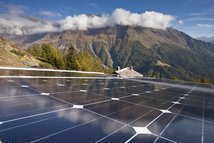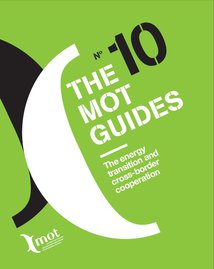Energy
Overview
Recommendations
KNOWLEDGE OF THE TERRITORY'S ENERGY POTENTIAL (SUPPLY/DEMAND)
- Listing and comparing available sources and methodologies for collecting and producing cross-border data
- Defining a cross-border diagnostic survey model for energy policies; developing joint studies (energy potential studies, etc.)
- Creating a data-exchange system and acquiring common technical tools
- Supporting the creation of cross-border energy observatories
ENCOURAGING RAPPROCHEMENT OF POTENTIAL PARTNERNSHIPS
- Promoting the identification of key players (function/competence/goal/strategy) and their complementarities
- Understanding the institutional framework and key players’ interactions in neighbouring countries
- Creating an exchange network (local public and private players) with relays to citizens
- Creating cross-border services for energy information and advice/cross-border offices for energy, etc.
- Establishing long-term regional energy strategies to encourage energy market stability and companies’ confidence for developing partnerships with political decision-makers
- Defining a cooperation methodology (proposal of tools) and developing a common terminology (conceptualisation, thesaurus, etc.)
COMMON USE OF ENERGY AND NETWORKS (GETTING RID OF THE BORDER EFFECT REGARDING FLOWS)
- Reinforcing mutual understanding of the functioning of the internal energy market.
- Developing infrastructure and networks (public/private)
- Jointly introducing technical innovations
- Developing an integrated and functional energy market within the cross-border territory (with regard to production, storage, distribution, transport, and consumption)
- Developing partnership systems and new connections (cross-border smart grids)
STRENGTHENING GOVERNANCE AND INVOLVEMENT OF CITIZENS
- Developing joint information and communication actions on climate and energy issues (consumption, exploitation, investment, etc.) and on the benefits and opportunities offered by clean energy.
- Increasing/encouraging the involvement of citizens as consumers and producers (encouraging eco-responsibility amongst citizens)
- Promoting the creation of networks, associations, and citizen cooperatives
- Facilitating the creation of structures for citizen participatory local financing, involving communities and the private sector in setting up projects
IDENTIFYING FUNDING SOURCES
- Conducting an inventory on investment and financing models (public or private, including bank loans, insurance, and subsidy programmes)
- Helping private companies to guarantee initial allocations and take charge of preliminary expenses
- Improving information/communication regarding these instruments
- Favouring calls for tender, for wind and photovoltaic power
HARMONISED REGULATIONS
- Carrying out a diagnostic survey of the legal barriers to cooperation
- Aiming at common regulatory capability (competence within the context of cross-border regulation)
- Recommending simplification of the regulations and adapting them to other concerns to which they apply (environment, industry, employment, etc.)
- Revising the procedures for project appraisal in order to better reduce delays, streamlining and more clearly explaining the European grants application procedures
- Define a state of regulatory "stability" to be reached and recognised on both sides of the border after a number of years sufficient for the investments required
COORDINATED PLANNING
- Pooling (and in the long term, producing) statistical data and mapping
- Developing an analytical and methodological framework with the aim of obtaining the topic’s inclusion in the programmes - integration of a cross-border component in national and regional planning documents; detailing the topic and projects in the various programme strands (economic development, training, research/ innovation, etc.)
- Defining a standard model for a Cross-border Territorial Climate and Energy Plan (PCET)
- Developing common specifications between local authorities at the border
Photo copyright: European Union, 2013



